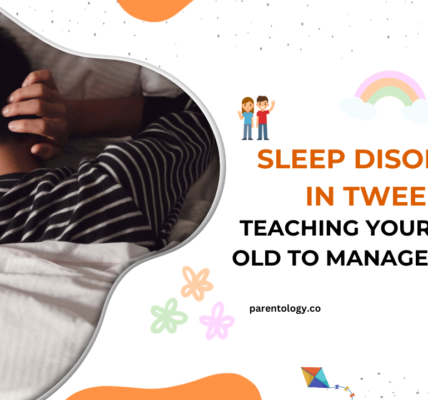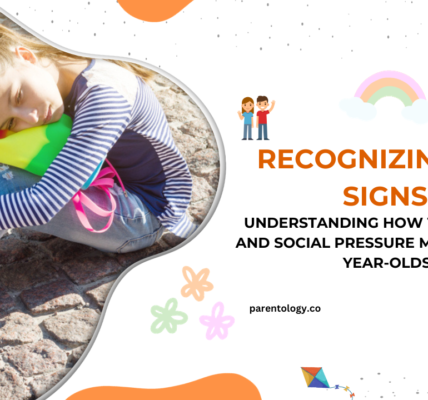Understanding Anxiety in Tweens
Anxiety is a common mental health issue that affects many tweens, impacting their emotional well-being and daily life. As parents, recognizing and addressing anxiety in our children is crucial. In this comprehensive guide, we’ll explore effective coping strategies tailored for both boys and girls, aiming to support parents in navigating this challenging journey.
Recognizing Anxiety in Tweens Boys and Girls
1. Signs and Symptoms of Anxiety:
- Physical Indicators: Watch for physical symptoms like stomachaches, headaches, or changes in appetite and sleep patterns.
- Behavioral Changes: Be mindful of increased irritability, avoidance behaviors, or sudden reluctance to engage in activities they once enjoyed.
2. Differentiating Anxiety in Boys and Girls:
- Expression of Emotions: Boys might express anxiety differently, often masking their feelings, while girls might be more vocal about their worries.
- Social Behavior: Girls might display anxiety in social situations, while boys might exhibit it through behavioral changes or increased aggression.
Coping Strategies for Parents: Empowering Tweens
1. Open and Supportive Communication:
- Encouraging Dialogue: Create a safe space for open conversations about feelings, fears, and anxieties without judgment.
- Active Listening: Practice active listening to understand their concerns and provide reassurance and guidance.
2. Establishing a Routine and Structure:
- Consistent Schedule: Maintain a structured routine to provide stability, reducing uncertainty and anxiety triggers.
- Predictable Environment: Create a calm and predictable home environment to instill a sense of security.
Strategies Tailored for Tween Boys and Girls
1. Coping Techniques for Boys:
- Physical Outlets: Encourage physical activities or hobbies as a healthy outlet for stress and anxiety.
- Mindfulness Practices: Introduce relaxation techniques or mindfulness exercises to help boys manage their emotions.
2. Coping Techniques for Girls:
- Creative Expression: Support creative outlets like art, journaling, or music to express emotions and alleviate anxiety.
- Supportive Networks: Foster friendships and social connections to provide emotional support and understanding.
Seeking Professional Guidance and Support
1. Knowing When to Seek Help:
- Persistent Symptoms: Consult a mental health professional if anxiety symptoms persist or significantly impact daily life.
- Resources and Assistance: Utilize available resources, such as school counselors or therapists, to support your child’s mental health.
Encouraging Self-Care and Coping Skills
1. Teaching Coping Mechanisms:
- Breathing Exercises: Introduce deep breathing techniques or simple meditation practices to help tweens manage moments of anxiety.
- Positive Self-Talk: Encourage affirmations and positive self-talk to build resilience and self-confidence.
2. Encouraging Self-Care Habits:
- Healthy Lifestyle: Promote regular exercise, balanced nutrition, and sufficient sleep to foster overall well-being and resilience.
- Stress-Relief Activities: Encourage activities like reading, puzzles, or hobbies that provide relaxation and distraction.
Creating a Supportive Environment
1. Building Trust and Support:
- Validation of Feelings: Validate your child’s feelings and experiences, fostering a sense of trust and security in sharing their emotions.
- Empathy and Understanding: Show empathy and understanding, acknowledging their struggles and offering consistent support.
2. Fostering Resilience:
- Problem-Solving Skills: Teach problem-solving techniques, empowering tweens to handle challenges effectively.
- Facing Fears Gradually: Encourage gradual exposure to anxiety triggers, supporting them in facing fears at their own pace.
Encouraging Healthy Communication
1. Establishing a Safe Space:
- Non-judgmental Atmosphere: Ensure your tween feels comfortable expressing their feelings without fear of judgment.
- Active Engagement: Initiate discussions about their day, feelings, and concerns, fostering an ongoing dialogue.
2. Validation and Empathy:
- Validating Emotions: Acknowledge and validate your tween’s emotions, letting them know it’s okay to feel anxious at times.
- Offering Reassurance: Provide reassurance that their feelings are valid and that you’re there to support them through their challenges.
Building Coping Strategies Together
1. Collaborative Coping Techniques:
- Brainstorming Solutions: Work together to brainstorm coping strategies, allowing your tween to be part of the decision-making process.
- Trial and Error: Encourage trying various coping mechanisms to discover what works best for them personally.
2. Celebrating Progress:
- Acknowledging Small Wins: Celebrate even the smallest victories, reinforcing the progress made in managing anxiety.
- Encouraging Persistence: Emphasize the importance of persistence, understanding that managing anxiety is a journey.
Enhancing Emotional Resilience
1. Teaching Emotional Regulation:
- Identifying Triggers: Help your tween recognize their anxiety triggers, empowering them to respond effectively.
- Relaxation Techniques: Introduce relaxation methods like progressive muscle relaxation or guided imagery to manage stress.
2. Encouraging Peer Support:
- Friendship Networks: Encourage healthy friendships and social connections that provide emotional support.
- Peer Understanding: Ensure peers are informed about anxiety, fostering understanding and empathy among friends.
Promoting Self-Expression and Art Therapy
1. Creativity as an Outlet:
- Art Therapy: Encourage art-based activities as a form of expression, allowing your tween to articulate emotions visually.
- Journaling: Suggest keeping a journal to express feelings, thoughts, and reflections on anxious moments.
Accessing Professional Support When Needed
1. Seeking Professional Guidance:
- Consulting Mental Health Professionals: Consider seeking guidance from therapists or counselors specializing in childhood anxiety.
- Supportive School Resources: Utilize school counselors or psychologists as a valuable resource in managing anxiety.
FAQs: Common Questions about Anxiety in Tweens
Q 1: Is it normal for tweens to experience anxiety?
Ans 1: Yes, anxiety is a common experience among tweens due to various developmental changes and pressures.
Q 2: How can I help my tween overcome their fear of anxiety-inducing situations?
Ans 2: Encourage gradual exposure and provide support while helping them navigate anxiety-provoking situations.
Q 3: When should I consider professional help for my tween’s anxiety?
Ans 3: If anxiety significantly impacts daily life, persists, or causes distress, seeking professional guidance is advisable.
Q 4: What role can parents play in supporting a tween with anxiety?
Ans 4: Parents can offer empathy, encouragement, and practical coping strategies while creating a supportive environment.
Q 5: How can I differentiate between typical tween worries and anxiety that requires attention?
Ans 5: While occasional worries are common, persistent anxiety significantly impacting daily life, relationships, and activities might require professional evaluation and support.
Q 6: Can anxiety in tweens affect their academic performance?
Ans 6: Yes, anxiety can interfere with concentration and focus, potentially impacting academic performance. Addressing anxiety can help improve their ability to engage in schoolwork.
Q 7: Should I discuss my tween’s anxiety with their school or teachers?
Ans 7: Sharing relevant information about your tween’s anxiety with school authorities can foster understanding and ensure appropriate support within the school environment.
Q 8: How can I support my tween if they’re resistant to seeking help for their anxiety?
Ans 8: Encourage open conversations, offer reassurance, and validate their concerns while gently emphasizing the benefits of professional support in managing anxiety.
Q 9: Is there a link between screen time and tween anxiety?
Ans 9: Excessive screen time can contribute to stress and anxiety in tweens. Encouraging healthy screen limits and promoting diverse activities is beneficial.
Q 10: Can parental anxiety impact a tween’s anxiety levels?
Ans 10: Parental anxiety can influence a tween’s emotional well-being. Modeling healthy coping mechanisms and managing parental stress positively impacts a tween’s anxiety levels.
Conclusion:
Supporting tweens through their anxiety journey involves fostering open communication, teaching coping skills, and providing an empathetic and nurturing environment. By implementing the suggested strategies and being actively involved in their coping process, parents can significantly impact their tween’s ability to manage anxiety effectively.
For a wealth of parenting resources and expert advice on various mental health topics, explore the valuable content available at Parentology, offering insights and guidance to navigate the complexities of parenting.





